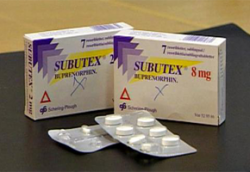Is Methadone Treatment the Only Option?
Methadone treatment has been used successfully since the 1970s to help people off of opiate-based drugs. While many people have received help from methadone treatment, there are those who would prefer other options. Fortunately, there are many ways to find relief from opiate withdrawal and addiction.
Why Choose Methadone Treatment?
Methadone treatment consists of “a program in which addicted individuals receive daily doses of methadone… as part of a broad multicomponent treatment program” (CDC). Usually, along with receiving methadone to curb withdrawal, patients are asked to attend regular therapy sessions and doctor’s visits in order to stay on the right track. Here are some reasons you might want to consider methadone treatment:
- You have been struggling with your opiate addiction for a long time.
- You tried other methods and they haven’t worked.
- You have a demanding life that is difficult to leave behind for a long rehab.
- You are heavily addicted to an opiate or opiate-based medication that has caused many problems in your life.
Many people want other options besides methadone treatment. Some fear that they would just be substituting one addiction for another. Here are some other options that you can try in order to work through your addiction.
Medically-assisted Detox
Many detox and rehab facilities will help you through your withdrawal period with other medications. According to the NLM, “the most commonly used medication, clonidine,” is very beneficial for curbing certain withdrawal symptoms, such as:
- Body and muscle aches
- Cramps
- Runny nose
- Sweating
- Anxiety
- Agitation
Doctors in these facilities will also use other medications to treat vomiting and diarrhea to keep the patient from becoming too dehydrated. Another option is buprenorphine (brand name Subutex) which “can shorten the length of detox” (NLM). These options are preferable for a patient who doesn’t need as much long-term care as someone who may choose methadone treatment.
Therapy

Subutex is another option for medication therapy.
In almost every treatment program, there is some form of therapy used. Many people get the most benefits from their counseling sessions, whether in group or one-on-one, and this treatment is helpful both during and after detox. You may decide that therapy is the most important treatment for you, but that does not mean medically-assisted detox or methadone treatment are out of the picture. Often, therapy goes hand-in-hand with other treatments during abuse rehab.
Inpatient Care
Another way to ensure great care for people who are severely addicted to opiates is to check into an inpatient facility. These centers have around-the-clock care and provide therapy, medically-assisted detox, and sometimes classes that will help you work through your addiction and recovery in other ways (ex. exercise, yoga, and nutrition classes). Inpatient care usually lasts for at least 3 months, where you will stay in the facility. This is sometimes an expensive option, but there are inpatient centers that work on sliding payment scales. Visit the SAMHSA treatment locator to find one near you.
The NIDA states that “no single treatment is appropriate for everyone.” This is very true. As methadone treatment can be very helpful to some, others may benefit from a different treatment altogether. What should be the highest priority in addiction treatment is, of course, the patient and his or her needs.